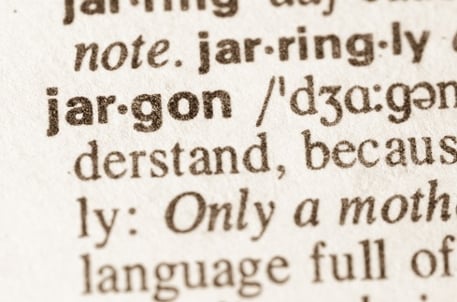 The retirement plan industry has a problem – jargon. While speaking the language is second nature to those who live every day in retirement plan consulting, it’s important that we act as ambassadors and translate the convoluted acronyms and industry slang, so our partners and retirement committee members have the knowledge they need to manage their plan with confidence.
The retirement plan industry has a problem – jargon. While speaking the language is second nature to those who live every day in retirement plan consulting, it’s important that we act as ambassadors and translate the convoluted acronyms and industry slang, so our partners and retirement committee members have the knowledge they need to manage their plan with confidence.
Two phrases that have been trending across our industry recently are the perplexing “3(21)” and “3(38)” fiduciary distinctions. But what do they even mean, and which type should you be considering for your retirement plan?
In all honesty, there is a lot of overlap in terms of the roles and responsibilities that 3(21) and 3(38) advisors provide. Both accept responsibility as a fiduciary for your retirement plan, acting in the best interest of your organization, employees, and the plan’s participants and beneficiaries. The key difference between a 3(21) and a 3(38) primarily appears when you look at their approach and responsibilities to investment oversight and due diligence.
One (the 3(21) advisor) will work with your retirement committee and provide guidance, support, and advice to manage and monitor the investments provided through the plan, making recommendations to add, remove, or place funds on the watchlist based on the criteria outlined in your Investment Policy Statement (IPS). However, the final decision to add or remove funds falls to the retirement committee. Nonetheless, both your Committee and your 3(21) fiduciary advisor are responsible for these decisions and documenting their prudence.
The other (a 3(38) advisor) will also provide the same guidance and support to manage and monitor your investment line-up, but the advisor will take full responsibility for adding and removing the funds in the retirement plan and have the authority to execute the changes as they see fit. Theoretically, they don’t need to even notify the Committee of these changes prior to authorizing them with your Plan’s vendor or custodian. While the 3(38) advisor or “investment manager” bears sole responsibility for investment decisions, your Committee is still responsible for monitoring and ensuring that the 3(38) advisor is acting in the best interest of the Plan participants and their beneficiaries – and you need a documented process to audit this requirement.
| 3(21) | 3(38) | |
| Accept responsibility as a fiduciary on your plan? | Yes | Yes |
|
Draft and follow fiduciary policies such as an Investment Policy Statement and Committee Charter? |
Yes |
Yes |
|
Provide specific advice to select, monitor, and maintain a suitable and competitive investment menu at all times? |
Yes | Yes |
|
Perform regular investment reviews and analysis? |
Yes | Yes |
| Responsible for approving changes to the investments offered in the retirement plan? |
Retirement Plan Sponsor/ Retirement Committee |
Retirement Plan 3(38) Advisor |
| Responsible for documenting fund change decisions & their prudence? | Retirement Plan Sponsor/Retirement Committee & 3(21) Advisor | Retirement Plan 3(38) Advisor |
| Responsible for frequent review of retirement plan partners & vendors | Retirement Plan Sponsor/Retirement Committee | Retirement Plan Sponsor/Retirement Committee |
So, which type of advisor is the best for you? It all depends on your unique needs as a plan fiduciary and your organization’s culture. If the idea of a democratic process, where all members of the retirement committee have the opportunity to remain involved in the final decisions for the plan appeals to you, then a 3(21) advisor might be a better suit. However, if you and your committee prefer to delegate tasks and prioritize efficiencies, then you might want to consider a 3(38).
It’s important to note that regardless of whether you are working with a 3(21) or a 3(38) fiduciary advisor, it is imperative that you continually monitor and review your partnership to ensure it is the best fit for your plan and employees.
Ultimately, if you’re unsure which type of relationship is best for you, it’s ok to ask your current (or prospective) advisor for their thoughts and guidance – that’s what they’re there for!
Need help starting the search for the right advisor? This guide may help!

